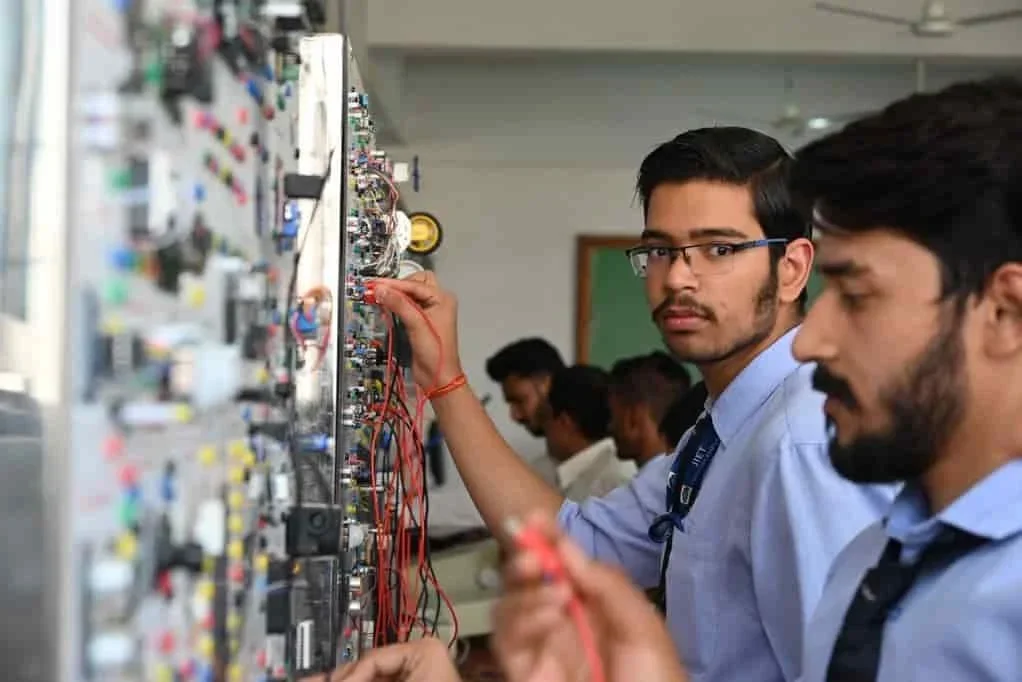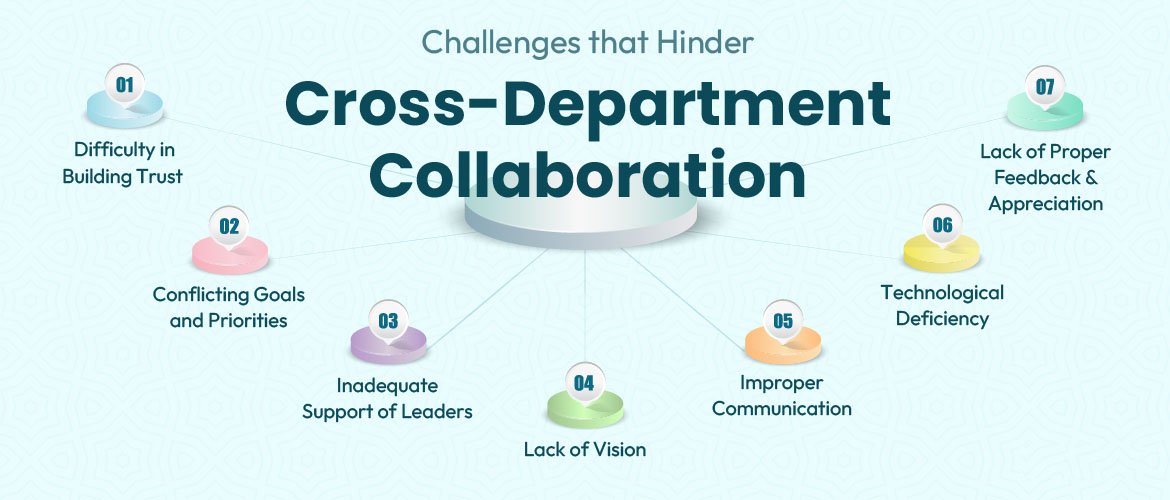What kind of engineers are in demand?
Engineering is an important branch of applied science that encompasses vast knowledge and technologies, with many sub-disciplines. Our everyday life often inspires the student who chooses to study engineering. Think of the moment you first saw an airplane, car, or the latest smartphone design. How did it feel? Those were the moment's engineers felt too—excited by what they saw and wanted more, looking for ways to improve what already existed. This line of thinking is behind most innovations of the last few centuries—from canalization to nuclear power generation, your favorite skyscrapers, to the World Wide Web.
Computer engineers, hardware engineers, and robotics engineers are all in high demand as many industries begin to shake up the old-school ways of doing things. Machines have been performing countless tasks that used to be exclusively within human abilities for decades now. GPS devices, for example, have replaced a much more expensive and much less efficient map-reading course for drivers. But with each breakthrough that automates a field, a new niche is created, which requires its own technicians and experts who can keep the entire complex system going. Technology has found its way into countless industries, so if you're an engineering student, there are plenty of opportunities waiting for you where your knowledge will be put to good use.
A casual online search will bring up a variety of lists for engineers, including top programming languages and the best engineering schools. But we wanted to get down to the specifics: Which individual engineers are in demand? We will discuss engineering occupations and their average wages based on industry projections and current trends with our crystal ball in hand.
Here are the top 6 engineers who are and will be in demand:
Data Science & Data Analytics Engineer
Software engineer
Automation & Robotics Engineer
Civil Engineer
Mechanical Engineer
Electrical Engineer
Data Science & Data Analytics Engineer
As the economy continues to shift, new fields of engineering have emerged. One of the most recent of these is the Data Analytics Engineer, whose domain is data analysis.
Data analytics engineers help businesses make better business decisions through data. They apply statistical methods to data to derive new patterns from existing data sets. They analyze data to achieve insights, data-based guide decisions and predict trends.
Data analytics engineers can find positions in many industries, including marketing, healthcare, finance, manufacturing, retail, and telecommunications. They work with managers and other engineers to develop, test, deploy, and maintain automated data analysis systems.
The field of data analytics has grown significantly in recent years, and the Bureau of Labor Statistics projects this growth to continue through 2026.
Data analytics engineers should have strong technical capabilities, including knowledge of statistics and computer programming, and should also have excellent communication skills.
Salary: Average base salary of a Data Science & Data Analytics Engineer starts from 4,20,000 INR / year and can go high as 22 LPA based on experience in the industry.
Software engineer:
The need for software engineers is growing faster than that of any other occupation.
The growth of software in other fields – from medical equipment to cars to airplanes to communications – is accelerating. The emerging industry that engineers will be needed for is called "cyberspace," because most of what it encompasses is invisible. The computer's invisible qualities make it an ideal tool. Engineers understand computers, and computers make engineers valuable.
Software engineers aren't the only kind of engineers. There are mechanical engineers, electrical engineers, chemical engineers, aeronautical engineers, and so on. But software engineers are specialized and extensively integrated with other engineers to build solutions for their respective industries.
Software engineers also differ from other engineers in one crucial respect: most engineers work for companies. Software engineers also work for companies, but they design the software for other companies, so their employment decisions are less dependent on the whims of their employers.
The demand for software engineers is increasing rapidly as the world is moving towards technology. The craze for computer science and engineering is growing at an unstoppable pace.
Salary: Average base salary of a Software Engineer starts from 4,00,000 INR / year and can go high as 16 LPA based on experience in the industry.
Automation & Robotics Engineer
Automation engineers are best known for designing complex manufacturing systems. They develop and configure computers, robots, and other equipment that either manufacture a product, such as a car or assemble a product, such as a computer.
Robots are a central part of the new economy. Companies are automating jobs as fast as they can and replacing manual workers with robots.
In today's world of automation, automation and robotics engineers are in high demand. As companies look to cut costs, automation is often the answer—engineers with automation skills are the priority.
An automation engineer is someone who designs automation systems. Engineers are in demand in industries that seek ways to increase productivity. One example of automation is robotics. Robots are machines that can work without a person. For example, they can be programmed to assemble products, pick and pack them, or handle palletizing and depalletizing.
Automation engineers can find jobs in various industries, such as transportation, electronics, textiles, and agriculture. Some automation engineers specialize in a specific type of manufacturing or assembly.
Salary: Average base salary of an Automation & Robotics Engineer starts from 4,40,000 INR / year and can go high as 18 LPA based on experience in the industry.
Civil Engineer:
Civil engineers are in demand mainly because of the rapid urbanization, industrialization, and population growth. In developing countries like India, the population of 1.25 billion, which is expected to reach 1.46 billion by 2026, will require more civil engineers to fill the infra and other requirements. In addition to this, there is a growing demand for civil engineers in developed countries like the United States, China, Japan, and European countries due to technological advancement.
An increased need for infrastructure drives the demand for civil engineering professionals. Cities and towns are growing, and more people are moving from the suburbs to the cities. The baby boomers are retiring, and there are more older people and people with disabilities to care for. There is an increased interest in alternative energy and environmental protection.
Civil engineers are needed to help build and maintain the aging infrastructure of our existing cities. Their skills are required to develop plans for expansion while reducing the cost of new construction.
Civil engineers prepare plans and specifications for the construction of buildings, roads, airports, dams, bridges, tunnels, sewers, water supply systems, water treatment plants, power plants, and sewage treatment plants. They also supervise construction projects.
Civil engineers also build protective structures against natural disasters, such as levees, dams, dikes, and seawalls. If floods, earthquakes, landslides, and hurricanes occur, they design systems to divert or eliminate floodwater and combat soil erosion.
Salary: Average base salary of a Civil Engineer starts from 3,40,000 INR / year and can go high as 12 LPA based on experience in the industry.
Mechanical Engineer
Mechanical engineering is a branch of engineering that deals with designing mechanical parts, equipment, and systems. Mechanical engineering is the study of mechanics. Mechanical engineers use the principles of physics, material science, thermodynamics, fluid dynamics, and hydraulics to understand and design mechanical systems, such as engines, machines, mechanical devices, and robots.
Mechanical engineers design, construct, test, and supervise the manufacturing of machineries such as engines, equipment, and vehicles. Mechanical engineers work in many different industries; some work as mechanical engineers in automobile manufacturing, aircraft manufacturing, and heavy machinery and construction industries, whereas other mechanical engineers work in research and development, government, and consulting.
Mechanical engineers are inventive and inventive. They design and create new products, processes, and systems to satisfy human needs and improve the quality of life. Mechanical engineers develop technological systems, such as wind turbines, heating and cooling systems, robots, and medical devices. Mechanical engineers work in many industries, such as aerospace, computer hardware, construction, energy, and automotive.
Salary: Average base salary of a Mechanical Engineer start from 3,60,000 INR / year and can go high as 12-14 LPA based on experience in the industry.
You can also go through the article why to choose mechanical engineering to get an in-depth insight into mechanical engineering.
Electrical Engineer
The demand for electrical engineers has been rising strongly, and this demand is expected to continue growing in the future. Since technology has penetrated almost every aspect of our lives, the need for electrical engineers is expected to remain high.
Electrical engineers design the systems that power our homes, offices, and factories. They use mathematics, physics, and chemistry to control electricity generation, transmission, and distribution. They work in industries as diverse as aerospace, robotics, telecommunications, computer design, medicine, and petroleum engineering.
This career is broad and involves many different tasks. An electrical engineer often spends time designing circuits or analyzing how power will be transmitted. Another part of the job may be supervising electrical engineers who are designing power systems.
Salary: Average base salary of an Electrical Engineer starts from 3,50,000 INR / year and can go high as 13 LPA based on experience in the industry.
You can also go through the article Scope of Electrical Engineering for more insights into an electrical engineer.
Takeaway: Careers in engineering require creativity, leadership, communication, and problem-solving skills. But above all, they require a love of learning. You'll need to stay informed on the latest developments in the world around you and your profession. You'll need to have the skills to design new products, improve existing products, and solve problems. You can go through all the above in-demand engineers and make an informed decision.































